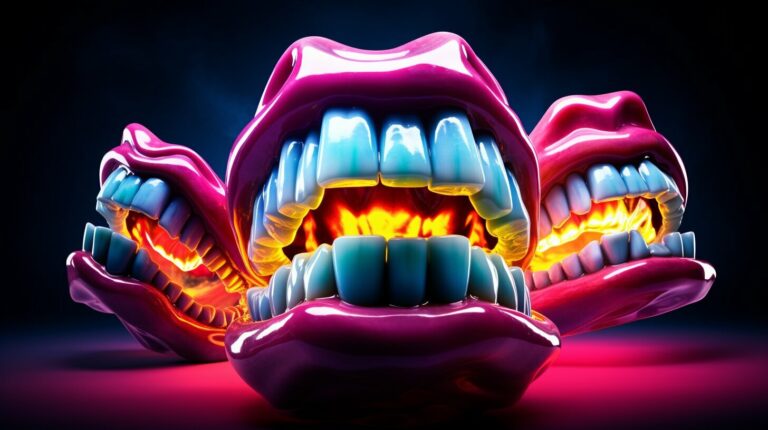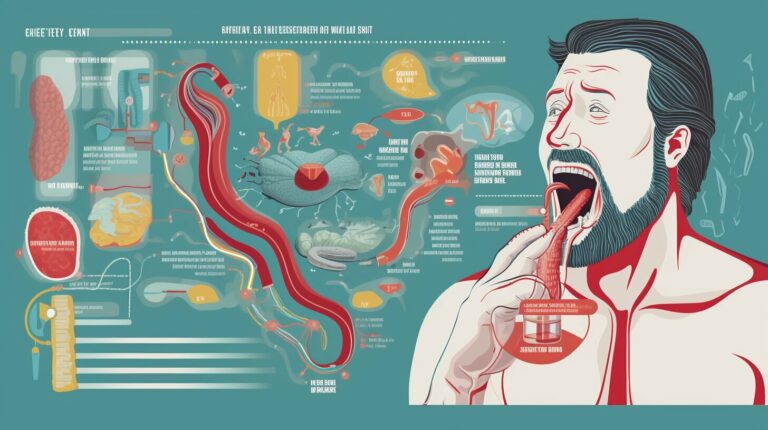Uncovering the Best Time of Day to Drink Tea for You
As a tea lover, I understand the importance of finding the perfect cup of tea at the perfect time of day. Tea is a beverage that can be enjoyed at any time, but are you aware that the best time of day to drink tea can vary from person to person? In this article, I will explore the concept of finding the optimal tea drinking time for you.
To begin with, having a tea drinking schedule can help you enjoy tea more effectively. Whether you prefer a morning cup, an afternoon pick-me-up, or an evening blend, it’s critical to ensure that your tea consumption aligns with your body’s natural rhythms and your lifestyle factors. Here’s why.
Key Takeaways
- Finding the best time of day to drink tea can vary from person to person
- Having a tea drinking schedule can help you enjoy tea more effectively
- Aligning your tea consumption with your body’s natural rhythms and lifestyle factors is critical for optimal tea enjoyment
Benefits of Drinking Tea at Different Times of Day
As a tea lover, I appreciate the versatility of this beloved beverage. Not only does tea come in an array of flavors and varieties, but it can also be consumed at different times of the day for various benefits. Let’s explore the advantages of drinking tea during different parts of the day:
Morning Tea Routine
Starting the day with a cup of tea can set a positive tone for the rest of the day. The natural caffeine content of tea can provide an energy boost without the jitters that come with coffee. A cup of tea can also hydrate the body after a long night’s sleep and ease digestion. I recommend trying a robust black tea such as English Breakfast or Assam to jumpstart your morning.
Afternoon Tea Benefits
When that midday slump hits, a cup of tea can help you power through the rest of your day. The caffeine and theanine in tea can improve focus and concentration. Additionally, certain types of tea such as green tea contain antioxidants that can promote overall health. I suggest trying a refreshing tea such as peppermint or a fruity blend like berry hibiscus to reinvigorate your mind and body.
Evening Tea Rituals
As the day comes to a close, it’s important to wind down and prepare for a good night’s sleep. Tea can be a calming and soothing ritual before bedtime. Chamomile tea is a popular option, known for its relaxation properties and ability to aid in sleep. However, it’s important to note that some teas such as black tea or green tea contain caffeine and should be avoided in the evening if you are sensitive to caffeine.
Incorporating tea into your daily routine can be a powerful self-care practice. By aligning tea consumption with your body’s natural rhythms, you can maximize the benefits of this ancient beverage.
Understanding the Circadian Rhythm and Tea Drinking
When it comes to tea drinking, timing is everything. The body’s natural sleep-wake cycle, known as the circadian rhythm, can be influenced by consuming tea at specific times. Understanding this rhythm is essential to optimize tea-drinking rituals and improve sleep patterns.
Certain types of tea, such as chamomile and valerian root, have natural sedative properties that can promote relaxation and improve sleep quality. Drinking these teas in the evening can help prepare the body for rest and aid in falling asleep.
On the other hand, consuming tea high in caffeine, such as black and green teas, can disrupt sleep patterns if consumed too close to bedtime. It is important to consume these teas earlier in the day to reap their benefits without affecting the quality of sleep.
Moreover, aligning tea consumption with the body’s natural circadian rhythm can enhance the benefits of tea. For example, drinking tea in the morning can aid in waking up and provide a gentle energy boost. Meanwhile, afternoon tea can support focus and concentration, bridging the gap between lunch and dinner.
That said, it is important to note that everyone’s circadian rhythm is unique and can vary based on lifestyle factors such as work schedules and personal preferences. Experimenting with different tea drinking schedules and observing the effects on energy levels, focus, and sleep patterns can help individuals tailor their tea consumption timing to their specific needs and optimize the tea-drinking experience.
Tailoring Tea Time to Your Lifestyle and Preferences
When it comes to determining the best time of day to drink tea, it’s essential to consider your personal lifestyle and preferences. Your work schedule, daily routine, and sleep habits are all factors that can impact when you should consume tea.
One way to create a tea drinking schedule that aligns with your lifestyle is to identify the times when you typically need an energy boost. If you tend to feel sluggish in the morning, starting your day with a cup of tea can help you jumpstart your day. If you find it difficult to focus in the afternoon, incorporating an afternoon tea break can help you regain your focus. And if you struggle with winding down at night, sipping on a cup of tea before bed can help you relax and prepare for a peaceful night’s sleep.
Another factor to consider when determining the best time of day to drink tea is your personal preference. Some people enjoy the bold flavor of black tea in the morning, while others prefer the calming effects of herbal tea in the evening. Experimenting with different types of tea at different times of day can help you discover what works best for you.
Ultimately, the best time of day to drink tea is the time that works best for your body and lifestyle. By taking a personalized approach and considering your individual needs and preferences, you can create a tea drinking schedule that enhances your tea experience.
Experimenting with Tea Timing and Observing the Effects
Now that we’ve explored the benefits of different tea timings and the importance of aligning tea drinking with your body’s natural rhythms, it’s time to experiment with your tea drinking schedule. Finding the best time of day to drink tea is a personal journey, and it requires some trial and error to discover what works best for you.
Start by creating a tea drinking schedule that aligns with your lifestyle and preferences. Consider your work schedule and daily routine when determining when to drink tea. For example, if you need a mid-afternoon energy boost, try incorporating a cup of black tea into your daily routine around 3 pm.
Be open to experimenting with different types of tea at different times of the day. If you typically drink green tea in the morning, try swapping it out for an energizing black tea to see how it affects your focus and productivity. Keep track of the different teas you try and how they make you feel throughout the day.
By observing the effects of different tea timings on your body and mind, you can make informed decisions about when to drink tea for optimal benefits. Use a journal or an app to track your tea consumption, and take note of how you feel after drinking tea at different times of the day. By doing so, you’ll be able to create a tea drinking schedule that enhances your overall well-being.
Tailoring Tea Time to Your Lifestyle and Preferences
When it comes to determining the best time of day to drink tea, it’s important to consider your personal lifestyle and preferences. There is no one-size-fits-all answer, as everyone’s daily routine and tea-drinking habits are unique.
One approach is to create a tea drinking schedule that aligns with your daily routine. For example, if you are a morning person, you may want to start your day with a cup of tea to kickstart your morning routine. If you have a busy afternoon at work, an afternoon tea break can provide a much-needed energy boost and moment of calm.
It’s also important to consider your personal preferences when it comes to tea drinking. Some people love the calming effects of herbal teas in the evening, while others prefer a strong black tea to start their day. Experimenting with different types of tea at different times of day can help you find the perfect match for your taste buds and daily routine.
Ultimately, the best time of day to drink tea is the time that works best for you. Don’t feel obligated to stick to any specific tea-drinking schedule, and don’t be afraid to mix things up from time to time.
Creating Your Ideal Tea-Drinking Schedule
To create your ideal tea-drinking schedule, consider the following factors:
- Your daily routine: When do you wake up and go to bed? What are your work and personal commitments?
- Your preference for caffeine: Do you prefer a strong cup of black tea or a caffeine-free herbal tea?
- Your goals for tea drinking: Are you looking to enhance focus and energy, or promote relaxation and calm?
By taking these factors into account, you can create a tea-drinking schedule that is customized to your lifestyle and preferences. Remember to be flexible and adapt your schedule as needed, and don’t forget to savor the moment with every sip!
FAQ
Q: What is the best time of day to drink tea?
A: The best time of day to drink tea can vary for different individuals. It depends on personal preferences and lifestyle factors. Some people prefer starting their day with a cup of tea, while others enjoy it in the afternoon or evening. Ultimately, the best time for you to drink tea is whenever it fits into your daily routine and brings you enjoyment.
Q: What are the benefits of drinking tea at different times of day?
A: Drinking tea at different times of the day can offer various benefits. Starting the day with a morning tea routine can help wake up the body and provide a gentle energy boost. Enjoying afternoon tea can improve focus and concentration, especially during that midday slump. In the evening, tea can be a relaxing ritual to wind down and prepare for a restful sleep. Aligning tea consumption with the body’s natural circadian rhythm can optimize the effects and enhance overall well-being.
Q: How does tea consumption affect the circadian rhythm and sleep patterns?
A: Tea consumption can impact the circadian rhythm and sleep patterns. Tea contains caffeine, which is a stimulant that can interfere with sleep if consumed too close to bedtime. It’s advisable to choose herbal teas that are naturally caffeine-free if you want to minimize any potential sleep disruptions. Additionally, the timing of tea consumption, particularly caffeinated teas, should be considered to ensure it doesn’t interfere with your sleep quality.
Q: How can I tailor my tea time to my lifestyle and preferences?
A: To tailor your tea time to your lifestyle and preferences, it’s important to consider your daily routine, work schedule, and personal preferences. If you have a busy morning, you may find it more suitable to enjoy tea in the afternoon or evening. Experiment and find the time of day that allows you to fully savor your tea without rushing. It’s all about finding what works best for you and creating a tea drinking schedule that enhances your overall tea experience.
Q: How can I experiment with tea timing and observe the effects?
A: Experimenting with tea timing is a great way to understand how it affects your energy levels, focus, and overall well-being. Start by tracking your tea consumption at different times of the day and noting how you feel afterwards. Pay attention to any changes in energy, concentration, or sleep patterns. By observing the effects, you’ll be able to make informed decisions and customize your tea drinking schedule to maximize the benefits and enjoyment.






